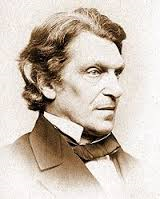 |
| image: flickr.com |
I think that these definitions are still relevant today. Hill concludes that "There are many touching areas and crossover points within these three faith communities. Unitarian Christianity so easily finds common cause with a universalised theism; and a naturalised Christian theism is less problematical for religious humanists. Humanists also find common cause with Christians and theists in values which transcend individual persons, and in appreciating the importance of symbol and myth. All of which brings these three different faith communities to common ground and a shared community."
I believe that there are more than these three faith communities
within Unitarianism today: for example, one that has moved away from
Christianity altogether, and one in which the earth and the spiritual are at
the centre, rather than humankind. And of course there are the agnostics and
spiritual seekers, and those who call themselves atheist (in the sense that
they do not believe in any divine being). In terms of belief (or lack of it) we
are a diverse bunch indeed.
Over the last couple of decades, there has been a move away from
the intellectual approach of earlier times, towards a more heart-centred or
emotion-centred approach to our faith. Many Unitarians are acknowledging that
some mysticism has its place within our panoply of beliefs too.
The existence of these very diverse faith communities, this
religious pluralism, is one of Unitarianism's strengths; this ability to
accommodate people of differing beliefs. Today, most Unitarian communities in
the UK
I leave you with Michaela von Britzke's vision for the future of Unitarian communities, when she
writes:
"The times require us to move beyond our emphasis on the
intellect and our dependence on the pulpit-based hierarchy, to become more
expressive, egalitarian, and inclusive. We need to spend more time on holistic
learning. We need to deal with shadows and projections, learn to deal with
conflicts, work in groups, encounter each other deeply, in pain and joy. Sunday
sermons, I believe, are the celebratory sauce for the bread pudding of daily
living with integrity."
In other words, we need to become
truly welcoming spiritual communities, places where our individual spiritual
and religious quests can safely be undertaken, in an atmosphere of freedom and
respect and acceptance. A base from which we can go out and live our faith, not just talk about it.



